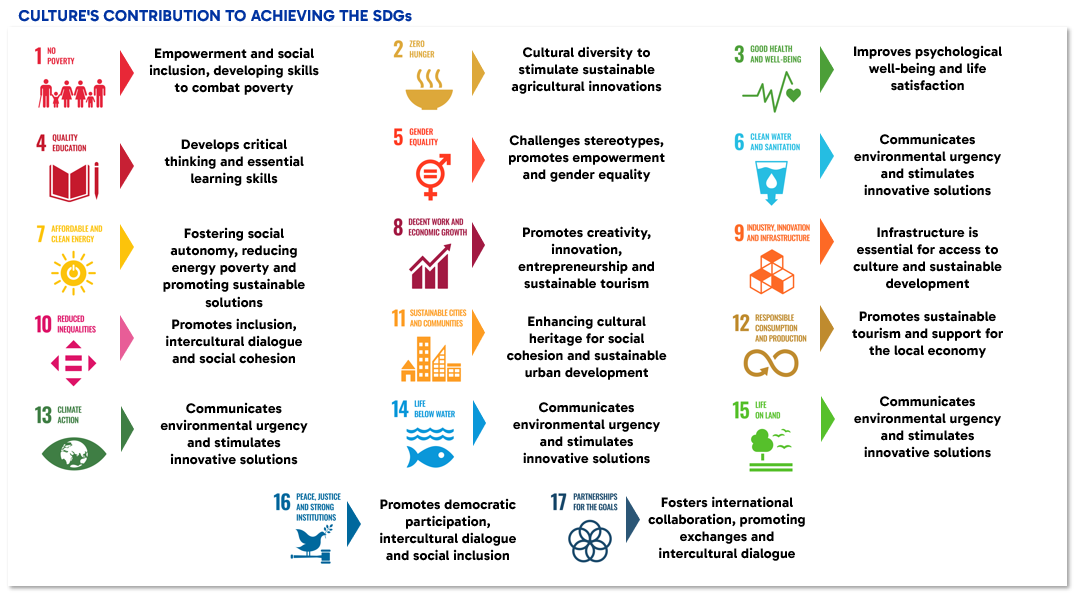Culture for SDGs
The contribution of culture to the achievement of the SDGs
Aeroporti di Roma has set itself the goal of transforming the Leonardo da Vinci into an exhibition space celebrating Italian culture in all its forms, supporting the importance of art and cultural initiatives in shaping society, also in support of sustainable development.
Culture, in fact, plays a fundamental role in achieving the Sustainable Development Goals because it acts as a catalyst for social, economic and environmental change and progress and is a transversal element that permeates all dimensions of sustainable development, influencing the shape and direction of development processes, promoting diversity, inclusion and local identity. Furthermore, recognising and valuing local cultures contributes to the resilience of communities, strengthens the sense of belonging and promotes intercultural dialogue.
Culture is directly referred to in a limited number of the targets of some of the SDGs, however, there is also a correlation with other SDGs, reinforcing the role of art and culture as a cross-cutting tool for achieving the goals.
| Art and culture can play a role in economic development, job creation, promoting democracy, social justice and solidarity, fostering cohesion, combating social exclusion, poverty and inequality. Culture offers exploratory, questioning and critical approaches to the world and its systems and nurtures the capacity to identify and analyse current and complex challenges that require transversal and multidisciplinary responses to be understood and addressed. |






